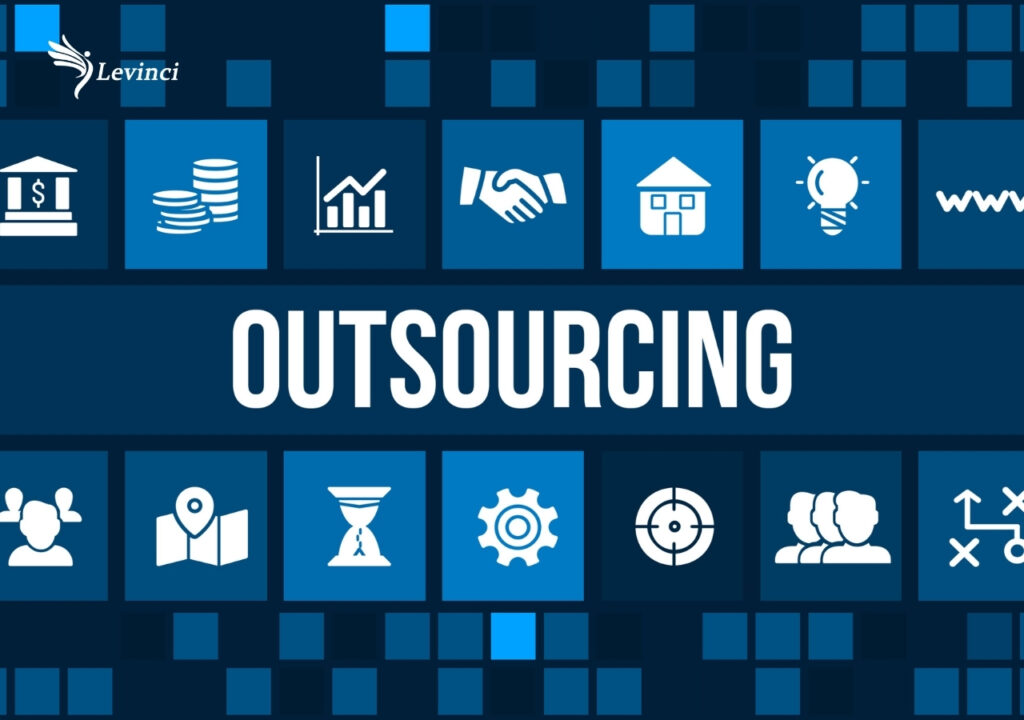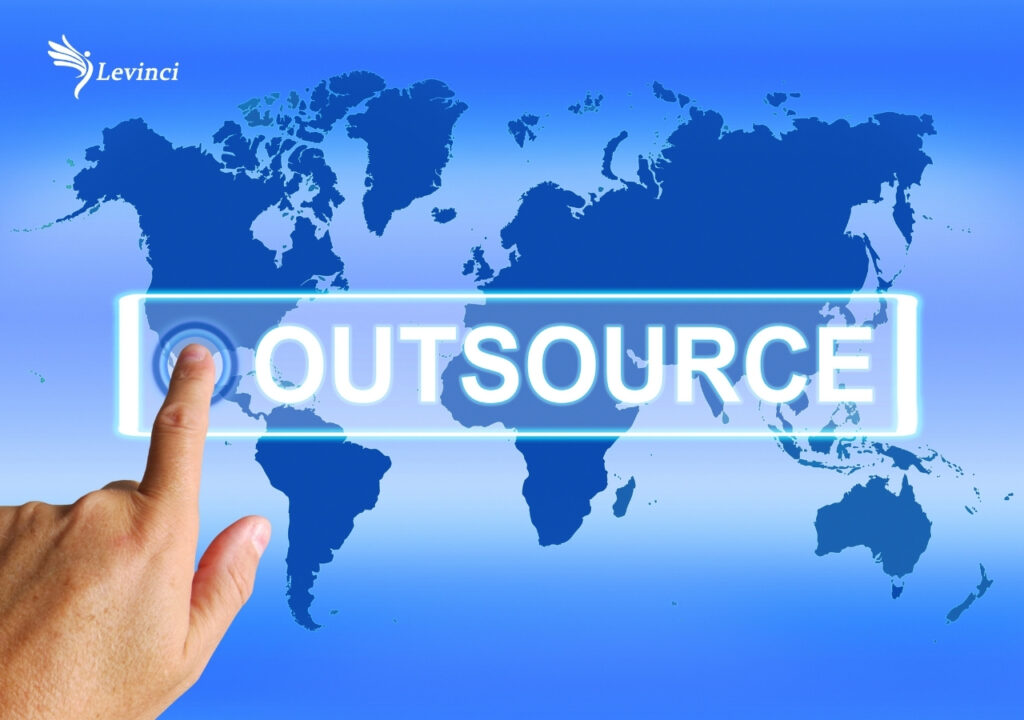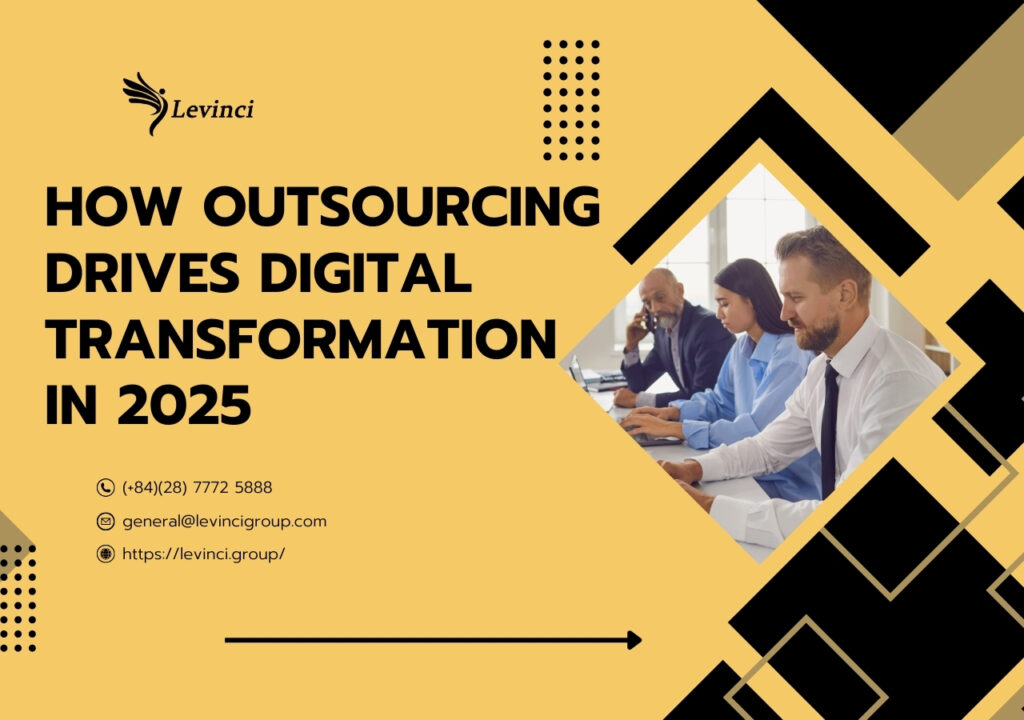In 2025, digital transformation is no longer a future ambition, it’s a business imperative. Outsourcing has emerged as a powerful catalyst for companies aiming to accelerate innovation, reduce costs, and stay agile in an increasingly competitive digital landscape. In this article, Levinci explores how strategic outsourcing is enabling businesses to drive meaningful digital change faster and more effectively than ever before.
What is digital transformation in 2025?
Digital transformation in 2025 refers to the holistic integration of advanced digital technologies across all areas of a business to fundamentally change how it operates, delivers value to customers, and competes in the market. Unlike earlier phases focused primarily on digitizing operations (e.g., going paperless or moving to cloud storage), the 2025 landscape demands deeper innovation powered by AI, automation, data intelligence, and connected ecosystems.
At its core, digital transformation in 2025 is about agility, customer-centricity, and intelligent automation. Businesses are no longer simply adopting digital tools — they are rebuilding processes, culture, and infrastructure around fast-evolving technologies like:
- Artificial Intelligence (AI) and Machine Learning (ML): powering predictive analytics, personalized experiences, and intelligent decision-making.
- Cloud-Native Architecture: enabling scalable, flexible, and cost-efficient operations.
- 5G and Edge Computing: supporting real-time data processing for IoT, AR/VR, and smart devices.
- Hyper Automation: automating not only tasks but entire workflows and decision trees.
- Cybersecurity by Design: ensuring digital growth is matched by proactive, integrated security measures.
In 2025, digital transformation also includes people and culture. Businesses are investing in digital skills, promoting agile mindsets, and restructuring teams for faster innovation cycles. Technologies are no longer siloed, they are interconnected through APIs, platforms, and data layers, enabling companies to build smarter products and more responsive services.
Ultimately, digital transformation in 2025 is a strategic business initiative, not just an IT upgrade. It’s about using technology to create sustainable competitive advantages, respond faster to market changes, and exceed modern customer expectations in a digital-first world.

The role of Outsourcing in digital transformation
In today’s hyper-competitive, fast-evolving digital landscape, businesses are under intense pressure to innovate, scale, and deliver value faster than ever. Outsourcing plays a pivotal role in driving this transformation by giving companies the speed, agility, and expertise they need to execute digital initiatives effectively—without overstretching internal resources.
1. Accelerating access to digital talent: One of the biggest barriers to digital transformation is the global shortage of skilled tech professionals. Outsourcing eliminates this bottleneck by giving organizations instant access to specialized talent—from software engineers and DevOps experts to data scientists and UI/UX designers. This enables faster development cycles and access to the latest technology stacks without the delay of hiring or training internally.
2. Focusing internal teams on core innovation: By outsourcing non-core or resource-intensive functions such as infrastructure management, software testing, or legacy system modernization, companies can free up internal teams to focus on high-impact strategic initiatives. This shift in resource allocation is critical for driving innovation and competitive differentiation in digital transformation efforts.
3. Reducing costs while scaling fast: Cost efficiency remains a core benefit of outsourcing. Through flexible engagement models, such as time & materials or dedicated teams, businesses can manage budgets more effectively while still achieving enterprise-level outcomes. Moreover, outsourcing allows for rapid scaling up (or down) of development resources in response to market demands, something that’s essential in today’s dynamic tech environment.
4. Enhancing technological agility: Digital transformation demands rapid experimentation and iteration. Outsourcing partners bring not only technical skills but also best practices in agile development, CI/CD (Continuous Integration/Continuous Deployment), DevSecOps, and product thinking. This accelerates go-to-market timelines and enhances the ability to pivot or innovate quickly based on user feedback and data.
5. Driving innovation through strategic collaboration: Modern outsourcing isn’t just about handing off tasks, it’s about collaboration. Strategic technology partners often bring fresh perspectives, industry benchmarks, and R&D capabilities that in-house teams may lack. These partnerships help businesses adopt new technologies like AI, blockchain, and edge computing more effectively, fostering innovation at every level.
6. Mitigating risk and ensuring compliance: Digital transformation often involves handling large volumes of sensitive data, integrating with third-party systems, and complying with regulations (like GDPR or HIPAA). Reputable outsourcing partners have established security protocols, compliance knowledge, and risk management frameworks that help mitigate these challenges and ensure regulatory adherence.

The future of Outsourcing in a digital-first world
In a digital-first world, outsourcing is evolving into a strategic cornerstone for businesses driving digital transformation in 2025 and beyond. As companies prioritize cloud-native solutions, AI integration, and hyper-personalized customer experiences, outsourcing provides the expertise, agility, and cost-efficiency needed to stay competitive. No longer just a cost-cutting tactic, outsourcing is becoming a catalyst for innovation, enabling firms to tap into global talent pools and cutting-edge technologies.
Vietnam, with its rapidly growing tech ecosystem and over 1 million IT professionals, is at the forefront of this shift, and providers like Levinci Group are redefining outsourcing with AI-driven software development, Magento 2 e-commerce solutions, and cloud expertise. This section explores the future of outsourcing, highlighting emerging trends, Levinci’s role, and how businesses can leverage outsourcing to thrive in a digital-first landscape.
AI and Automation redefining outsourcing
The future of outsourcing in a digital-first world is deeply tied to AI and automation. By 2025, AI-powered tools will handle repetitive tasks like code testing, data analysis, and customer support, allowing outsourced teams to focus on high-value, creative work.
For example, Levinci Group integrates generative AI into its workflows, enabling clients to develop AI-driven analytics platforms faster than traditional methods. Automation also enhances efficiency, with Deloitte predicting that 60% of outsourcing contracts will include AI components by 2026. This shift allows businesses to outsource complex digital transformation projects such as AI model development or automated supply chain systems, while achieving scalability and precision.

Rise of nearshore and offshore hubs like Vietnam
Vietnam is emerging as a global leader in outsourcing, driven by its cost-effective labor (30-50% lower than Western markets, per Statista) and a tech-savvy workforce. In a digital-first world, businesses are prioritizing offshore hubs like Vietnam for their proximity to innovation and robust IT infrastructure.
Focus on sustainable and ethical outsourcing
Sustainability is shaping the future of outsourcing as businesses align with ESG (Environmental, Social, Governance) goals. In 2025, companies will prioritize outsourcing partners who adopt green IT practices, such as energy-efficient data centers and sustainable software development.
Hyper-specialized outsourcing for niche technologies
As digital transformation accelerates, businesses require expertise in niche areas like digital twins, blockchain, and low-code platforms. The future of outsourcing lies in hyper-specialized services, where providers offer tailored solutions for specific technologies.
Collaborative ecosystems and co-Innovation
Outsourcing is shifting from transactional relationships to collaborative partnerships. In a digital-first world, businesses and outsourcing providers co-innovate, working together to design AI-driven tools, IoT systems, or cloud-native architectures. Levinci Group fosters this model, collaborating with clients to develop customized solutions, such as an IoT-enabled logistics platform that improves delivery efficiency. This collaborative approach ensures outsourcing aligns with long-term digital transformation goals, creating shared value and fostering innovation.

Choosing the right Outsourcing Partner – Levinci
In a digital-first economy where speed, innovation, and expertise determine competitive advantage, choosing the right outsourcing partner can make or break your digital transformation journey. Not all vendors are created equal, what you need is a strategic technology partner that understands your vision, scales with your business, and delivers quality with consistency. That’s where Levinci stands out.
Levinci Group, based in Vietnam’s thriving tech hub, stands out as a premier outsourcing partner, delivering tailored software development, Magento 2 ecommerce platforms, and AI-driven solutions. With a proven track record of empowering startups and enterprises, Levinci combines cost-effectiveness, technical excellence, and a client-centric approach.

Conclusion
In conclusion, outsourcing stands as a pivotal force in the digital transformation strategies of 2025, offering access to critical skills, accelerating innovation, and optimizing resources. As businesses navigate an increasingly complex technological landscape, strategic partnerships will become even more essential for driving sustainable growth and maintaining a competitive edge in the years to come.

